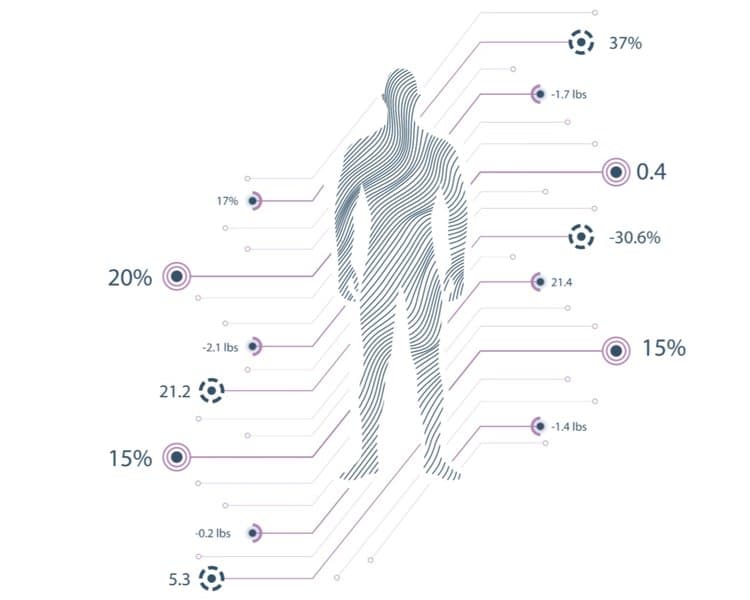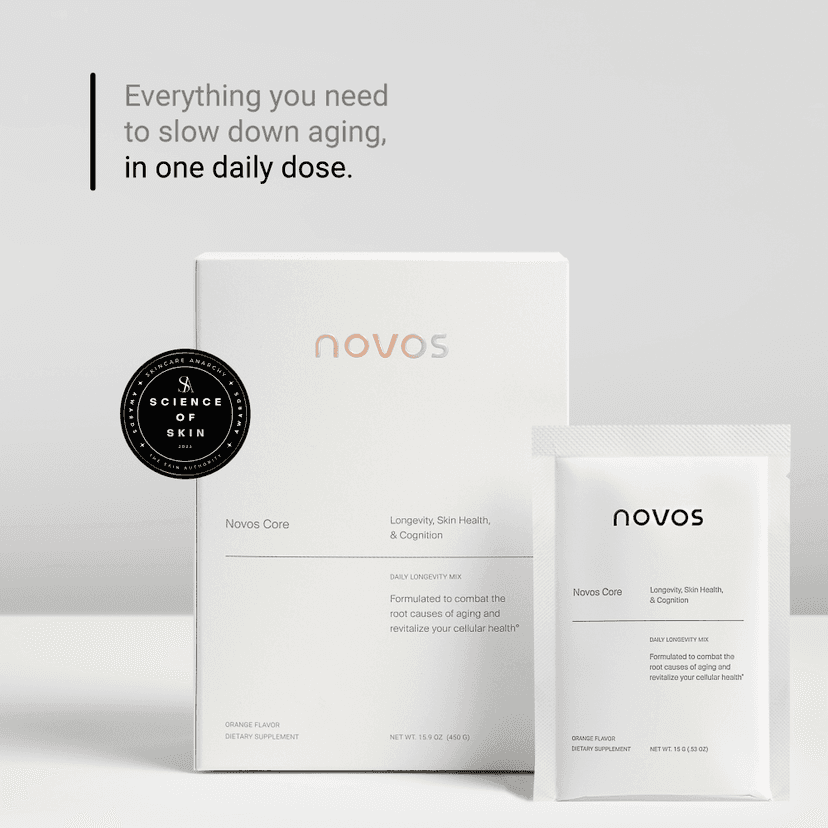Technology is changing how we think about aging and living longer. From wearable devices that keep track of our health to smart homes that help us live independently, new tech is making it easier to stay healthy and active as we get older. This article looks at the latest innovations in health tech that aim to extend not just our lifespan but also our healthspan.
Key Takeaways
- Wearable devices help monitor vital signs and promote physical activity.
- Gene editing and regenerative medicine offer new ways to treat age-related diseases.
- Artificial intelligence is being used to predict and prevent illnesses.
- Smart home technologies allow older adults to live independently and safely.
- Early detection tools and telemedicine improve the management of chronic diseases.
The Role of Wearable Devices in Longevity
Monitoring Vital Signs
Wearable devices, such as smartwatches and fitness bands, are revolutionizing how we monitor our health. These gadgets track vital signs like heart rate, sleep patterns, and physical activity. By keeping an eye on these metrics, individuals can make informed decisions about their health.
Early Detection of Health Issues
One of the most significant benefits of wearable devices is their ability to detect health issues early. For instance, irregular heartbeats or unusual sleep patterns can be early indicators of more severe conditions. Early detection allows for timely medical intervention, potentially saving lives.
Promoting Physical Activity
Wearable devices also encourage users to stay active. Many devices come with features that remind users to move if they've been inactive for too long. This promotes a healthier lifestyle, which is crucial for longevity. Regular physical activity can help prevent chronic diseases and improve overall well-being.
Wearable devices are not just gadgets; they are essential tools in the quest for a longer, healthier life.
Innovative Longevity Tech Companies
Leading Companies in the Field
Several companies are at the forefront of longevity technology, each contributing unique solutions to extend both lifespan and healthspan. These companies are pioneering advancements that could revolutionize how we age. Some of the leading names include Calico, Unity Biotechnology, and Juvenescence.
Notable Products and Services
The products and services offered by these companies range from genetic editing tools to advanced diagnostics. For instance, Calico focuses on understanding the biology of aging, while Unity Biotechnology works on therapies to slow down or reverse age-related diseases. Juvenescence is investing in a variety of technologies aimed at extending human life.
Investment Opportunities
Investing in longevity tech is becoming increasingly attractive. Here are some key points for potential investors:
- High Growth Potential: The market for longevity tech is expected to grow rapidly.
- Diverse Portfolio: Investing in a range of companies can mitigate risks.
- Long-Term Gains: These technologies may take time to develop but offer substantial long-term benefits.
Longevity tech is not just about living longer; it's about living healthier, more fulfilling lives. The innovations in this field hold promise for a future where age-related diseases are a thing of the past.
Gene Editing and Regenerative Medicine
CRISPR and Genetic Modifications
The emergence of gene editing technologies like CRISPR-Cas9 has revolutionized our ability to modify and manipulate genes. This holds immense potential for treating genetic diseases and preventing inherited conditions. By editing faulty genes, scientists envision a future where genetic disorders can be eradicated, leading to longer and healthier lives. CRISPR technology, although still in its early stages, promises to be a game-changer in the fight against aging and disease.
Stem Cell Therapies
Regenerative medicine, particularly stem cell therapies, offers great promise for the future of healthcare. These therapies use adaptable stem cells to repair and replace damaged organs and tissues. This could potentially eliminate the need for organ transplants and provide long-lasting solutions for chronic conditions. Stem cell research is paving the way for treatments that could reverse the effects of aging and extend life expectancy.
Tissue Engineering
Tissue engineering techniques are being developed to create new tissues and organs in the lab. This field aims to provide solutions for repairing or replacing damaged body parts. By harnessing the power of tissue engineering, scientists hope to develop therapies that can regenerate lost or damaged tissues, offering new hope for patients with chronic illnesses and injuries. The advancements in tissue engineering could lead to breakthroughs that significantly improve the quality of life and longevity.
Artificial Intelligence in Healthcare
Predictive Analytics for Disease Prevention
Artificial intelligence (AI) has the power to analyze huge amounts of data, helping doctors find patterns and risk factors. This means diseases can be spotted before they even start, allowing for early treatment and better health outcomes. AI systems can predict health issues, which can lead to longer, healthier lives.
AI in Personalized Medicine
AI is also changing how we get treated. By looking at a person's unique data, AI can suggest treatments that are just right for them. This personalized approach means that treatments are more effective and have fewer side effects. AI helps doctors make better decisions, improving patient care.
Robotics in Elderly Care
Robots powered by AI are helping take care of older people. These robots can do tasks like reminding them to take their medicine, helping them move around, and even providing company. This makes it easier for older adults to live independently and safely at home.
The future of healthcare is being shaped by AI, making it possible to live longer and healthier lives.
Smart Home Technologies for Independent Living
Fall Detection Systems
Fall detection systems are crucial for ensuring the safety of older adults living alone. These systems use sensors and algorithms to detect falls and automatically alert emergency services or family members. This quick response can be life-saving.
Health Monitoring Devices
Health monitoring devices track vital signs such as heart rate, blood pressure, and glucose levels. These devices can send real-time data to healthcare providers, enabling timely interventions.
- Heart rate monitors
- Blood pressure cuffs
- Glucose meters
Social Connectivity Tools
Social connectivity tools help older adults stay in touch with family and friends. Video chat services and social media platforms can reduce feelings of isolation and loneliness.
Staying connected with loved ones is essential for mental and emotional well-being.
Early Detection and Management of Age-Related Diseases
Innovative Diagnostic Tools
Early detection of health issues is critical. Multi-cancer detection tests and full-body MRI scans can identify potential problems early, allowing timely intervention. Personalized health risk assessments based on genetic information can guide targeted screenings and preventive measures.
Chronic Disease Management
Improvements in diagnosis and treatment could potentially increase individual life spans. Tiny sensors that can detect heart attacks before they happen, AI-assisted diagnosis and treatment plans, and custom drugs and treatments for complex diseases like cancer are some of the advancements in this field.
Telemedicine and Remote Care
Products and programs that improve our health and wellbeing, like webcam-enabled doctor’s visits or personal training, could keep us healthier longer.
The rise in new technologies will benefit healthy aging and longevity by enabling people to live healthier, more fulfilling lives at all ages. For example, technological innovations have been deployed to keep people physically active, enable independent living such as by detecting falls, smart home technology, early detection of diseases and management of disease conditions, maintenance of social connections by reducing social isolation and continued engagement in the workforce, to name a few.
The Future of Longevity Research
Emerging Trends and Innovations
The field of longevity research is rapidly evolving, with new trends and innovations emerging regularly. Technologies that facilitate and augment preventive treatments could delay the onset of chronic diseases and add decades to a person’s lifespan. Researchers are exploring various avenues, including advanced genetic modifications, personalized medicine, and cutting-edge diagnostic tools.
Ethical Considerations
As we push the boundaries of longevity research, ethical considerations become increasingly important. Questions about access to these technologies, potential socioeconomic disparities, and the long-term effects on population dynamics need to be addressed. Ensuring that advancements are equitable and beneficial for all is a critical challenge.
Potential Challenges and Solutions
The journey towards extended lifespans is not without its hurdles. Researchers face numerous challenges, such as the complexity of human biology, regulatory hurdles, and the need for substantial investment. However, with collaborative efforts and continued innovation, these obstacles can be overcome. Potential solutions include increased funding for research, international cooperation, and the development of robust ethical guidelines.
The future holds immense promise for a world where individuals have the opportunity to live healthier, more fulfilling lives well beyond the current life expectancy. Embracing these advancements while addressing the ethical and socioeconomic implications will be crucial in shaping this transformative journey.
Conclusion
In conclusion, the intersection of technology and longevity is opening doors to a future where living longer and healthier lives is within reach. From wearable devices that monitor our health to groundbreaking advancements in gene editing and regenerative medicine, the innovations in health tech are truly transformative. These technologies not only aim to extend our lifespan but also enhance our quality of life by preventing diseases and promoting overall well-being. As we continue to embrace and develop these advancements, the dream of living up to 120 years may soon become a reality. The journey towards a longer, healthier life is just beginning, and the potential is limitless.
Frequently Asked Questions
What are wearable devices, and how do they help with longevity?
Wearable devices are gadgets you can wear, like smartwatches. They help you stay healthy by tracking things like your heart rate and steps. This can help you catch health problems early and stay active.
Which companies are leading in longevity technology?
Some top companies in this field include Google’s Calico, Unity Biotechnology, and AgeX Therapeutics. They are working on ways to help people live longer and healthier lives.
How does gene editing work in extending life?
Gene editing, like CRISPR, allows scientists to change genes in your body. This can help fix problems that cause diseases, potentially making you live longer.
What role does AI play in healthcare?
AI helps doctors predict and prevent diseases. It can also create personalized treatments for patients and assist with elderly care through robots.
How do smart home technologies support independent living?
Smart home technologies include devices that can detect falls, monitor health, and help you stay connected with others. These tools make it easier for older adults to live on their own.
Why is early detection important for age-related diseases?
Finding diseases early makes them easier to treat. New tools and telemedicine help doctors catch and manage these diseases sooner, improving the chances of better health.



















